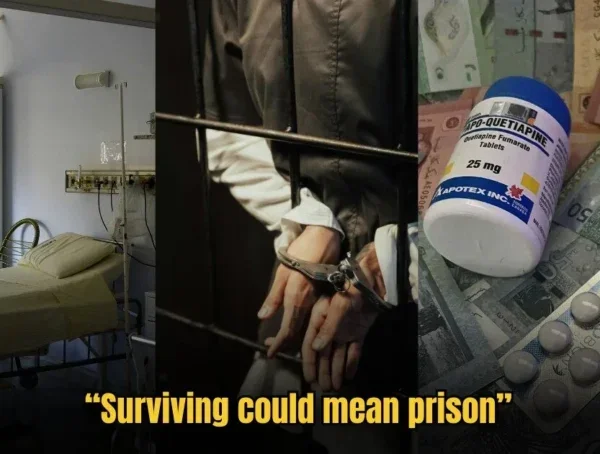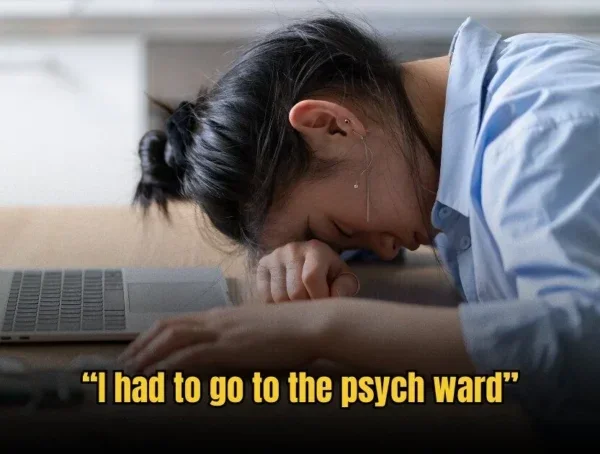A survey conducted in 2015 by the Malaysian Ministry of Health has found that about 29.2% of Malaysians suffer from some form of mental health issue. That’s roughly about 3 out of 10 of us! Both are damaging, and can result in short and long term problems.
Why do I say this? Because I (still) suffer from anxiety issues myself.
Right around the time I quit my PhD, I went through one of the darkest times in my life. It took several years to get out of it, and even today I still have the occasional anxiety attack. My head spins, my heart beats faster, and I feel nauseous.
But it’s getting better. My advice is, don’t go at it alone. I learned it the hard way, but you don’t have to. When things get tough, the tough get help. Here are some signs you need professional help:
1. It’s Impossible to Get Out of Bed

This is beyond the usual ‘Monday Blues’ where you hit the snooze button repeatedly. It’s having Monday Blues times a hundred.
You feel worthless. You feel that even if you did something today, it wouldn’t make a difference. It’s a mammoth task to even get out of bed, let alone go to school or work. You dread having to leave the safety of your bed, and you’re often late.
For me, I missed several days of lab work because I just couldn’t get out of the house. I would stay locked in for days without seeing anyone, not even friends. This led to further anxiety of not getting things done, which compounded my depression even further.
This is one of the signs of a problem, because it could lead to things like losing your job, and you risk falling even deeper into depression. If this is a symptom for you, please get help.
2. Your Sleep Patterns get Distorted

When things get bad, the first thing that’s affected is your sleep. Some people sleep too little, while others sleep too much. As it turns out, insomnia and depression are linked.
I personally experienced this myself. I swung between both extremes while battling my mental health issues. There was a period of several months when I had bouts of insomnia.
This meant several nights of not being able to sleep at all, or I managed to sleep for only a few hours at a time. This affected my quality of life. I couldn’t function at all on sleepless days, because my head would be pounding in pain and I’d be too groggy to drive.
Other days, I would sleep for more than 12 hours without even realizing that I woke up and turned the alarm off. These random sleep patterns and the depression both started taking a toll on my mental and physical health.
3. You Get Intense Nervous Episodes

I’ve been told that since I was never officially diagnosed by a Psychiatrist, I shouldn’t use the official term ‘Anxiety Attack’. But it felt exactly like that. I would get intense feelings of fear and dread for no reason at all. All the while I wanted to run and hide, or curl up into a ball and drop to the floor.
It would last for about half an hour, and would happen frequently throughout the day. There wouldn’t even be a particular trigger – it seemed to happen randomly.
I could be washing dishes, playing a board game with friends, or even sitting down at a mamak for dinner and it would come like a wave and wash through me.
Back then I didn’t know what to do, so I would just ignore it. If I was outside, I would act like nothing was up. It drained me, mentally. At the end of the day, I was too tired to even think straight.
4. You’re Lashing Out (A Lot)
This was also a period of intense fear for me. I feared the future, and my ability to survive as a person. This fear often manifested itself as anger and frustration, and it took its toll on my relationship with my then boyfriend (now hubster!).
Many of my tantrums were violent. There was a lot of throwing stuff around, and he would storm off to cool down. It hurt a lot, and there was so much worry and anxiety, that I was ready for it all to end.
When I say end, I didn’t mean that I wanted to die, but I was desperate for a way out. The pain was simply overwhelming. My emotions were spiralling out of control.
This was when I decided to see a Clinical Psychologist.
Psychologists are different from Psychiatrists. Psychologists often use different therapies like Cognitive Behavioral Therapy (CBT) to help you come to terms with your beliefs about yourself, like the fact that you’re worthy of love without having to work for it.
Psychiatrists, on the other hand, treat patients with the use of drugs. Both are viable methods. For me I was concerned that if I used drugs I would get dependent on them, so I chose CBT instead.
CBT isn’t an overnight cure, and for me it took about two years to feel like my old self again. Even now, four years later, I still get anxious over small problems. I still have to do breathing exercises to calm down.
The good news is, you can get better. Don’t be afraid to reach out. People aren’t as judgmental as you make them out to be, and you’ll find love and acceptance. All you have to do is reach out a hand.
If you find yourself experiencing any of these symptoms, please don’t ignore it. Seek professional help. You deserve a healthy, happy life.
This article should not be taken as a substitute for professional medical advice, diagnosis, or treatment. Always seek the advice of your physician or other qualified health providers with any questions you may have regarding a mental or medical condition. Never disregard professional medical advice or delay in seeking it because of something you have read on this Website.
More from Real Mental Health
“I Was Scared of Waking Up in Handcuffs,” shares Depressed M’sian on Repealed Law
In 2023, Malaysia repealed Section 309, a colonial-era law that made suicide attempts a crime. The change marked a shift …
‘Everyone Saw A Successful Student While I Was Crumbling,’ Shares 22 Year Old Student
This is a story of a 22 year old woman who shared her story as a Straight A’s student as …
5 Harmful Mental Health Myths Malaysians Still Believe
Let’s break down five of the most common myths Malaysians still believe, and why it’s time to let them go.














